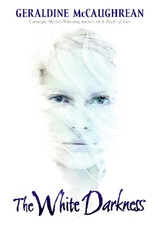 Ann Littlewood was a zoo keeper in Portland, Oregon for twelve years. She raised lions and cougars, an orangutan; and native mammals, as well as parrots, penguins, and a multitude of owls. The financial realities of raising primates (two boys of her own) led Ann to exchange a hose and rubber boots for a briefcase and pantsuit in the healthcare industry. Ann has maintained her membership in the American Association of Zookeepers and has kept in touch with the zoo world by visiting zoos and through friendships with zoo staffers.
Ann Littlewood was a zoo keeper in Portland, Oregon for twelve years. She raised lions and cougars, an orangutan; and native mammals, as well as parrots, penguins, and a multitude of owls. The financial realities of raising primates (two boys of her own) led Ann to exchange a hose and rubber boots for a briefcase and pantsuit in the healthcare industry. Ann has maintained her membership in the American Association of Zookeepers and has kept in touch with the zoo world by visiting zoos and through friendships with zoo staffers.Her new mystery is Night Kill.
Last week I asked her what she was reading. Her reply:
I try to balance my reading thus: two mysteries, one non-fiction, one literary fiction. This plan was meant to nourish the zoo mystery series IVisit Ann Littlewood's website and blog.write, my long-standing fascination with environmentalism, botany and zoology, and a large, erratic list of occasional interests. Well, it was a good idea. My actual current reading includes The Animal Dialogues by Craig Childs (encounters with wild animals), Stalking Susan by Julie Kramer (a fine first mystery), The World Without Us by Alan Weisman (you'll never look at humanity the same), and Crescent by Diana Abu-Jaber (about Arab-Americans). Oh, and Darkness & Light by John Harvey and Hannah's Dream by Diane Hammond. Sigh. Not enough hours in the day. At some point I throw up my hands and say, "I can read 'em or I can write 'em, but I can't do both at the same time."
--Marshal Zeringue


















































